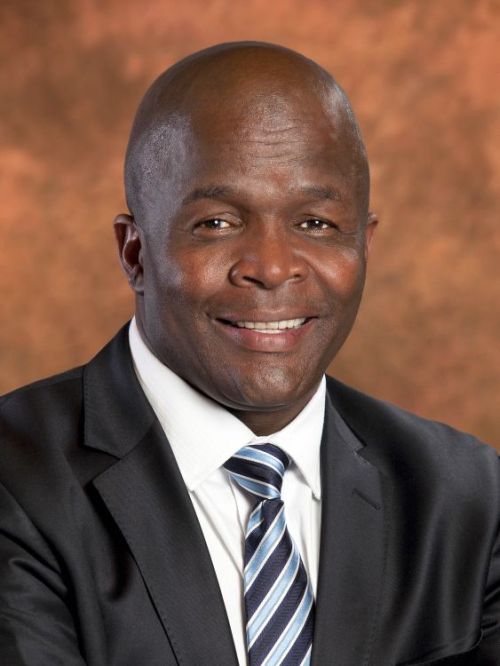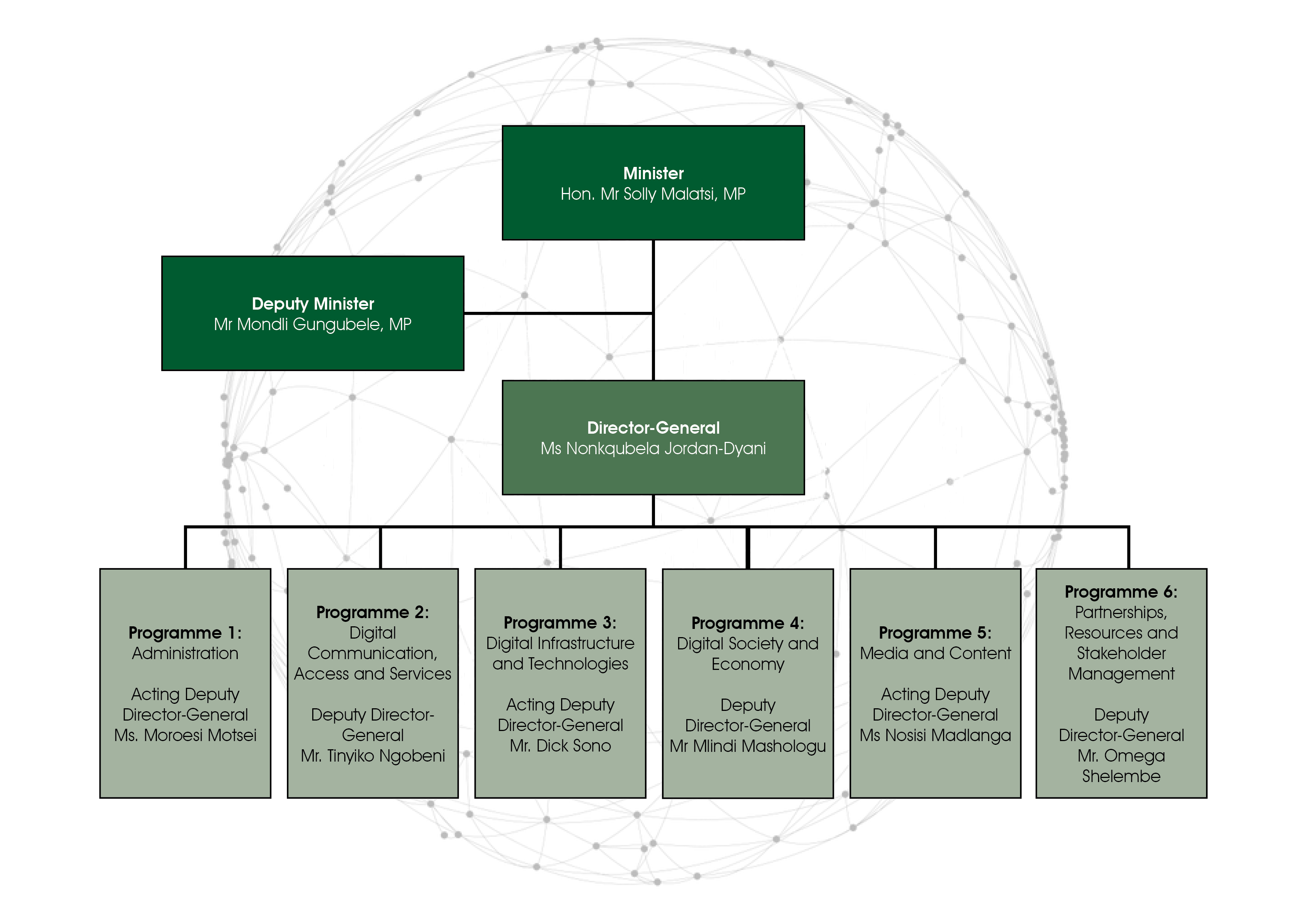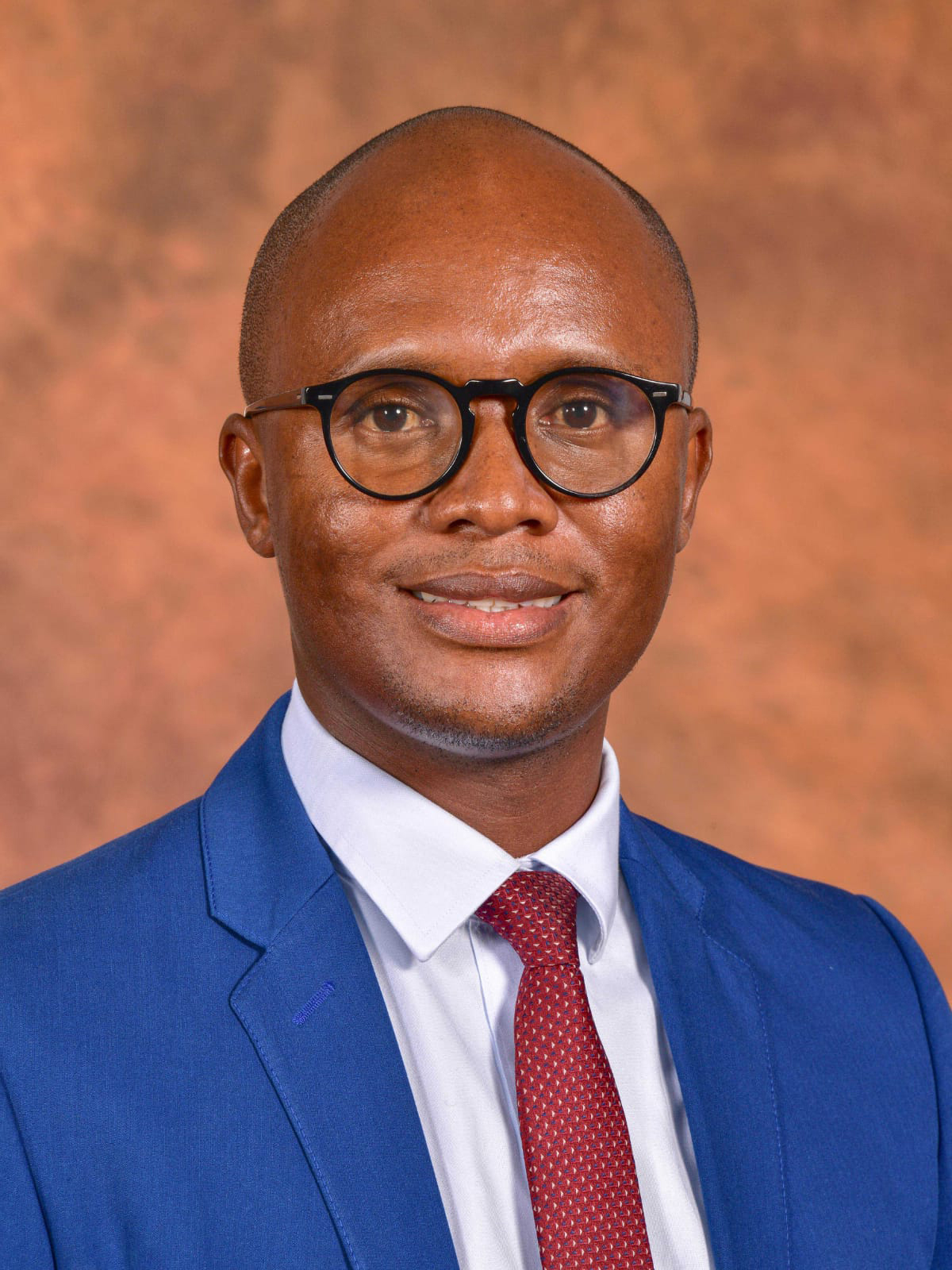- Acting Deputy Director-General: Administration: Ms Moroesi Motsei
- Deputy Director-General: Digital Communication, Access and Services: Mr Tinyiko Ngobeni
- Acting Deputy Director-General: Digital Infrastructure and Technologies: Mr Dick Sono
- Deputy Director-General: Digital Society and Economy: Mr Mlindi Mashologu
- Acting Deputy Director-General: Media and Content: Mrs Nosisi Madlanga
- Deputy Director-General: Partnership, Resource and Stakeholder Management: Mr Omega Shelembe
DEPUTY MINISTER MONDLI GUNGUBELE
 Profile of Deputy Minister Mondli Gungubele
Profile of Deputy Minister Mondli Gungubele
Deputy Minister Mondli Gungubele was appointed by President Cyril Ramaphosa as the Deputy Minister of Communications and Digital Technologies of the Republic of South Africa at the start of the 7th democratic administration with effect from 30 June 2024 after serving in the same portfolio as Minister from 6 March 2023 to the end of the 6th democratic administration. He previously served as Minister in the Presidency responsible for the Department of Planning, Monitoring and Evaluation (DPME), the National Planning Commission (NPC), Statistics South Africa (StatsSA), the Government Communication Information System (GCIS) and the State Security Agency (SSA).
Deputy Minister Gungubele has extensive experience in local, provincial, and national government and believes in strategic planning and effective monitoring of systems to ensure that government is held accountable to deliver services to the people. He is a political activist who spent much of his youth fighting for a liberated and just South Africa which is united in diversity.
Deputy Minister Gungubele became involved in the trade union movement in the ‘70s and it is this experience that sharpened his political and negotiation skills. In 1982, he became a member of the National Union of Mineworkers (NUM) and would later be elected as a Chairperson of his Local Branch of the Congress of South African Trade Unions (COSATU) in 1989. In 1992, he was elected as the Chairperson of the African National Congress (ANC) Vosloorus Branch, and later became the founding Chairperson of the ANC East Rand Region. In the same year, he was elected to the Provincial Executive Committee (PEC) of the ANC in Gauteng.
In 1994, Deputy Minister Gungubele was deployed as a Member of the Gauteng Provincial Legislature and was subsequently appointed as the MEC of Health in the Gauteng Provincial Government in 1997. He held this position until 1999. He was then deployed to lead Gauteng’s Sports, Recreation and Arts and Culture agenda as its MEC where he worked tirelessly to unite all sporting codes and contributed to the development of grassroots sports in Gauteng. He held the position until 2004 in the year South Africa was awarded the 2010 FIFA Soccer World Cup showpiece.
After the 2004 Provincial and National Elections, Gungubele became the Chairperson of the Economic Affairs Portfolio Committee in the Gauteng Legislature where he was responsible for political oversight and ensuring that the Department of Economic Affairs fulfilled its mandate to the people.
In 2009, he was deployed to the National Assembly as an ANC Member of Parliament, where he served as the Whip of the Justice and Constitutional Development Portfolio Committee. He was later redeployed to the City of Ekurhuleni as the City’s Executive Mayor in 2011. It is during this time where he drove the City’s Governance and Administrative record to clean audits and numerous awards on good governance.
In 2016, he was deployed back to Parliament and served on the Portfolio Committees on Communications and Public Enterprises respectively. Mr Gungubele was part of the collective which led SABC Inquiry and the Eskom Inquiry – both processes which paved the way for the turnaround of these two State Owned Enterprises.
Deputy Minister Gungubele was then appointed as the Deputy Minister of Finance from February 2018 until the general elections in May 2019. After the commencement of the 6thParliament in June 2019, he was deployed as the Chairperson of the Portfolio Committee of Social Development and the Convener of the Social Transformation Cluster.
Deputy Minister Gungubele holds a BCom (Law) Degree and a National Diploma in Nursing with various certificate courses. He also serves as a member of the National Executive Committee and National Working Committee of the African National Congress as elected in December 2022.
Vision
A leader in enabling a connected and digitally transformed South Africa.
Mission
Creating an inclusive digital environment to foster a thriving digital society and economy.
Values
- Transparency
- Respect
- Accountability
- Fairness
- Excellence
- Responsibility
- Innovation
- Agility
- Collaboration
DCDT STRUCTURE

- To develop ICT policies and legislation that create conditions for an accelerated and shared growth of the South African economy, which positively impacts on the well being of all our people and is sustainable;
- To ensure the development of robust, reliable, secure and affordable ICT infrastructure that supports and enables the provision of a multiplicity of applications and services to meet the needs of the country and its people;
- To contribute to the development of an inclusive information society which is aimed at establishing South Africa as an advanced information-based society in which information and ICT tools are key drivers of economic and societal development.
- To contribute to e-Skilling the nation for equitable prosperity and global competitiveness
- To strengthen the Independent Communications Authority of South Africa (ICASA), in order to enable it to regulate the sector in the public interest and ensure growth and stability in the sector;
- To enhance the capacity of, and exercise oversight over, State Owned Enterprises (SOE’s) as the delivery arms of government; and
- To fulfill South Africa’s continental and international responsibilities in the ICT field.
Vision
South Africa as a global leader in the development and use of information and communications technologies for socio-economic development.
Mission
Building a better life for all through an enabling and sustainable world class information technology environment.
Values
- Transparency;
- Respect;
- Accountability;
- Fairness;
- Integrity;
- Excellence; and
- Innovation
OUR MANDATE
Constitutional mandate
As supreme law of the country, the Constitution of the Republic of South Africa (1996) applies to all laws, and binds all organs of state, including National Government Departments such as the Department of Communications and Digital Technologies (DCDT). In particular, the values enshrined in the Bill of Rights outlined in Chapter 2 which is a cornerstone of democracy in South Africa. It enshrines the rights of all people in our country and affirms the democratic values of human dignity, equality and freedom.
In line with such values, the National Development Plan indicates that by 2030, ICTs will underpin the development of a dynamic information society and knowledge economy that is more inclusive and prosperous. A seamless information infrastructure will meet the needs of citizens, business and all the public sector, providing access to the wide range of services required for effective economic and social participation – at a cost and quality at least equal to South Africa’s competitors.
DCDT will therefore play a specific role in fostering broader economic and social participation by all citizens through digital transformation underpinned by the Fourth Industrial Revolution (4IR). The Department will focus on creating a South Africa where citizens can enjoy greater economic and social prosperity and comfort, enjoy higher levels of health, wellbeing and safety through levering the 4IR. The benefits that come with the adoption of these advanced 4IR technologies bring both economic and social advantages and benefits, transforming how we relate as individuals, groups, and organizations across the globe.
Legislative and Policy Mandates
Following the May 2019 National Elections, the President pronounced the establishment of the National Department of Communications and Digital Technologies. Accordingly, the Presidential Proclamation in Government Gazette dated 14 August 2019 (President Minute: 372) confirmed the transfer of administration, powers and functions entrusted by legislation to the Minister of Communication in terms of Section 97 of the Constitution. Accordingly, the mandate of the DCDT is as follows: To lead South Africa’s digital transformation to achieve digital inclusion that must result in economic growth through creating an enabling policy and regulatory environment.
Overview of the Department
The Department of Telecommunications and Postal Services aims to develop ICT policies and legislations that create favourable conditions for accelerated and shared sustainable growth for the South African economy which positively impacts on the well being of all our people.
The Department’s objectives are in line with the country’s National Development Plan, which recommends developing a co-ordinated and enabling ICT strategy and a plan that cuts across government departments and sectors to improve e-literacy,
and provide clarity on the roles and functions of the state to prevent unintended policy outcomes.
The plan also calls for a full policy review on the ICT sector, which has not been done since 1995.
The Department has therefore prioritised certain key policy initiatives.
- ICT Policy Review - A comprehensive review of policies for telecommunications, postal services, broadcasting and Information Technology.
- The Electronic Communications Amendment Bill - will also be introduced, which is important for ensuring the sector’s continued dynamism.
- National Broadband Policy - The broadband master plan that will ensure that the roles and responsibilities of key stakeholders in the sector are clearly defined
Furthermore the Department has the following key priorities:
- Broadcasting Digital Migration Policy
- Schools Connectivity
- Community Radio
- Rural Development
Director-General: Department of Communications and Digital Technologies
 PROFILE OF DIRECTOR-GENERAL MS NONKQUBELA THATHAKAHLE JORDAN-DYANI
PROFILE OF DIRECTOR-GENERAL MS NONKQUBELA THATHAKAHLE JORDAN-DYANI
Ms Nonkqubela Thathakahle Jordan-Dyani currently serves as the Director-General in the Department of Communications and Digital Technologies. She was formerly the Deputy-Director-General: International Relations and Trade who was also the Acting Director-General (DG) in the department for two years before she was appointed permanently in August 2023.
Nonkqubela is a seasoned civil servant with more than 20 years of experience in the public sector, including over a decade in senior management capacities.
She holds a BA from the University of Fort Hare, and BA (Hon) in international relations (politics and international law) from the same institution. Nonkqubela also holds certificates in telecommunications policy, regulation and management from Wits University, and digital transformation strategy from the University of Cambridge.
Nonkqubela has served on a number of national and international bodies, including co-chair of the Universal Postal Union (UPU) congress commitee on strategy, chair of the African Telecommunications Union (ATU), council member, and alternate representative on the inter-governmental assembly (IGA) for the New Partnership for Africa’s Development (NEPAD) ICT programme. She is also the chairperson of the Women’s Forum, and the deputy chairperson of South African Women in ICT.
MINISTER SOLLY MALATSI

Profile of Minister Solly Malatsi
Solly Malatsi is the current South African Minister of Communications and Digital Technologies, a position that highlights his extensive leadership and strategic expertise.
With a background as a seasoned communications specialist, he has served in various high-profile government roles, including as the Parliamentary Counselor to the Leader of the Official Opposition.
Minister Malatsi’s career in public service is marked by his exceptional ability to guide and implement communication strategies across multiple government levels, ensuring effective message delivery and organizational cohesion.
His leadership extends to his tenure as a Member of Parliament, where he has contributed to portfolios such as Sports and Recreation, Human Settlements, and Communications and Digital Technologies.
Notably, he completed a full term as a whip for the parliamentary caucus, demonstrating his leadership in managing party discipline and legislative processes. His previous roles also include serving as the spokesperson for the Western Cape MEC of Transport and Public Works, as well as for the Mayor of Cape Town, reflecting his versatility and ability to communicate across diverse political contexts.
Prior to his appointment as Minister, Malatsi was the national spokesperson for the Democratic Alliance (DA), where his skills in public communication were pivotal in shaping the party's public image and outreach.
He continues to hold key leadership positions within the DA, including serving as Provincial Deputy Chairperson in Limpopo and as the elected Deputy Federal Chairperson since 2023.
Minister Malatsi’s educational background includes a Bachelor of Administration from the University of Limpopo and an Honours Degree in Political Studies from the University of the Witwatersrand. His academic credentials complement his leadership roles, underlining his commitment to both governance and policy-making at the highest levels of government.
With a career defined by strong leadership, strategic communication, and a deep understanding of digital technologies, Solly Malatsi remains a key figure in shaping South Africa’s future in the digital age.
















